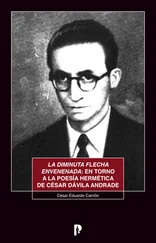My friend was home alone, but he invited us over for dinner anyway; he was a very sociable man — liked to talk and tell stories, though he wasn’t any good at it; he’d get the episodes mixed up, leave effects without causes and causes without effects, skip over important parts, and drop anecdotes right in the middle. This didn’t bother my mother, who at her age had reached a level of mental confusion equivalent to what my friend had been born with; I think she didn’t even notice. In fact, she was the one who most enjoyed the conversation that evening — it was the only thing she did enjoy — because the names of the town’s families were being constantly mentioned — magic words that distilled her entire interest in life. I listened to the names drop, as one listens to the falling rain, whereas for her, each was a treasure full of meanings and memories. Mother was enjoying something that was lacking in her daily conversation with me; in that respect, and in that one alone, she and my friend were perfectly in sync. He was a building contractor, and for decades he’d been building houses in Pringles, so he knew the configurations and genealogies of all the town’s families — one name conjured another, driven by the townspeople’s lifelong practice of pursuing their entire intellectual and emotional education by talking about one another. It would have been difficult to do this without names. It’s true that things get lost with age and arterial sclerosis, and they always say that names are the first to go. But names are also the first things to be found, for their search is carried out through other names. They started to talk about a woman, “the daughter of… what was her name? Miganne, who lived in front of Cabanillas’ office…” “Which Cabanillas?” “The one married to Artola’s daughter?” And they continued in this vein. Each name was a knot of meaning into which many other chains of names converged. The stories crumbled into a hailstorm of names and were left unsolved, like old crimes, swindles, betrayals, or scandals involving these families had also been left unsolved. To me, the names meant nothing, they had never meant anything, but that wasn’t why they didn’t sound familiar. On the contrary, they did sound familiar; I would say they were the most familiar things in the world, because I’d been hearing them since my earliest childhood, from before I could talk. For some reason though, I had never been able, or had never wanted, to associate those names with faces or houses; perhaps this was my way of rejecting the life of the town where I had, nonetheless, spent my entire life, and now, age and the loss of names, had created the curious paradox of losing what I had never had. Even so, when I heard them on the lips of my mother and my friend, each rang out like a chime of memories, empty memories, sounds.
It wasn’t as if I were devoid of real memories, full-fledged memories, a fact I ascertained after dinner when my friend showed us an old windup toy, which he removed from a glass display cabinet. It was small, barely larger than the palm of his hand, and was a pretty faithful miniature of an old-fashioned bedroom, complete with a bed, a bedside table, a rug, a wardrobe, and a door at the foot of the bed, which, without a wall to open out from, looked like a second wardrobe and was outfitted with a rectangular box, which I assumed hid one of the characters. Another character was in plain sight, lying on the bed: a blind old woman, partially reclining against some cushions. The floor of this room was neither tile nor parquet but rather made of smooth, dark planks, like the floors of the houses in Pringles that I remembered from childhood. I took special notice of it because it made me think of the house of two seamstresses where my mother used to take me when I was little. I have one very strange memory associated with that house. Once, when we went there, the floor was missing from the room where the seamstresses were working, that is a large part of it had been removed for renovations, or had caved in; the entire room was one great big pit, very deep, with dark gullies full of crumbling dirt and rocks, and water at the bottom. The seamstresses, and their assistants and customers, were all around the edges. Everybody was laughing and talking about the catastrophe and offering explanations. It’s one of those inexplicable memories that remains from early childhood. I don’t think it was as extreme as I remember, because nobody can live or work in a place like that, but I was very small — maybe that’s why the pit looked so big to me. I once asked Mother if she remembered it because it is still so vivid. Not only didn’t she remember the pit in the seamstresses’ room, she didn’t even remember the seamstresses. I was irrationally annoyed that she didn’t remember, as if she were forgetting on purpose. The fact was, she had no reason to remember such a trivial event from sixty years before. But she was intrigued, and she turned the subject over in her mind for an entire day. I had only one fact that might have helped her: one of the seamstresses had a finger that was hard and stiff, like wood. Based on this finger, which I could picture very clearly, I thought I could recall its owner, an old woman with dark brown hair in a stiff hairdo, tall and skinny, with strong bones; her finger was enormous. Needless to say, this detail didn’t help at all. My mother asked: Could they be the Adurizes, the Razquines, the Astuttis? It exasperated me that she’d try to get at it through names, which didn’t mean anything to me. My “names” were the pit, the finger, things like that, which didn’t have names. I didn’t insist. I kept the memory to myself, as I had so many others. My first memory, the first memory in my life, is also of an excavation: the street we lived on was dirt, and then they paved it, and to do so they had to dig up a lot of dirt and rocks; I remember the whole street divided up into rectangular pits, like graves, I don’t know why, because I don’t think you have to make a grid like that in order to pave a street.
These recurrent memories of pits, so primitive and maybe purely fantastical, had maybe come to symbolize “holes” in memory, or rather holes in stories, ones that not only don’t exist in the stories I tell but that I am always filling up in stories others tell me. I find fault in everybody else’s narrative art, almost always with good reason. My mother and my friend were particularly deficient in this respect, perhaps because of their passion for names, which prevented the stories’ normal development.
It was truly magical: names came to their lips with enormous facility and in abundant quantities. Did so many people now live or had so many people ever lived in Pringles? Any excuse would suffice for them to conjure up a whole new bunch of names. Those who’d lived on the block. Those who’d moved away from the block. Those who’d lost money on their houses. Those who grew aromatic herbs. These last came up after my friend began to praise the meal, which led to the story of how he had obtained the fresh sage for the rice. Packaged sage wasn’t any good — it lost most of its aroma during the drying process. And his own sage plants had been accidentally destroyed a few days before during one of his frequent house renovations or additions. So, that afternoon he had gone out to pay visits to some acquaintances whom he knew had herb gardens. He had no luck at the first place: their sage had been contaminated with toxic dust; maybe he could wash it well and use it but it wouldn’t be worth it if anyway he’d have to worry about it being poisoned. I asked if they’d used some kind of insecticide. No, something much worse! Delia Martínez, that was her name, never used any chemicals in her garden.
Читать дальше












